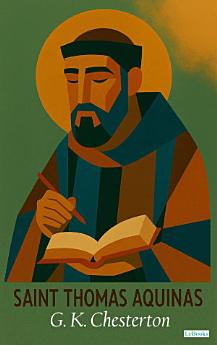Saint Thomas Aquinas
About this ebook
Since its emergence, the figure of St. Thomas has been recognized for his logical rigor, clarity of argumentation, and his effort to harmonize faith and reason without subordinating one to the other. His views on being, natural law, and the ultimate purpose of human life remain central to philosophical and theological inquiry. The work endures for its invitation to critically reflect on morality, human freedom, and the role of reason in understanding the divine.
The lasting relevance of Thomistic thought lies in its ability to address ethical and spiritual dilemmas from a rational and systematic perspective. By examining the relationship between humanity, God, and society, the work on St. Thomas Aquinas continues to offer intellectual tools for engaging with contemporary challenges through philosophical and spiritual depth.
About the author
Gilbert Keith Chesterton was an English writer, philosopher, and critic, widely recognized as one of the most prolific and influential intellectual figures of the early 20th century. Born in London, Chesterton is known for his works that explore themes such as faith, reason, social justice, and the defense of common sense against modern intellectual pretensions. A master of paradox and wit, he wrote across multiple genres including essays, novels, poetry, and detective fiction, establishing himself as a formidable voice in literature and Christian apologetics.
Chesterton's career began in journalism, writing for publications such as The Daily News and The Illustrated London News. His sharp wit and ability to present complex ideas in accessible language quickly gained him recognition. Among his most famous works are the Father Brown detective stories, featuring a Catholic priest who solves crimes through psychological insight rather than forensic methods. These stories, beginning with The Innocence of Father Brown (1911), established Chesterton as a master of the detective genre.
Chesterton's work was revolutionary for combining profound philosophical insights with popular accessibility. He is considered a master of Christian apologetics, influencing writers such as C.S. Lewis and J.R.R. Tolkien. His essays, characterized by wit, paradox, and common sense, challenged the intellectual fashions of his time, particularly materialism, socialism, and what he saw as the arrogance of modern progress.
Chesterton created a distinctive form of argumentation that combined humor with serious philosophical reflection. His ability to find profound meaning in everyday experiences and to defend seemingly simple truths against sophisticated objections made him a unique voice in literature. He championed the concept of "distributism," an economic philosophy that advocated for widespread property ownership as an alternative to both capitalism and socialism.








